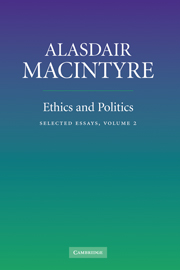7 - Truthfulness and lies: what can we learn from Kant?
Published online by Cambridge University Press: 27 January 2010
Summary
At first sight and on a conventional reading no two moral philosophers are more sharply at odds concerning truth telling and lying than are Mill and Kant. Mill held that some lies are not only morally permitted, but morally required, while Kant held that all lying is prohibited. In Utilitarianism at least Mill's justifications, both of his formulation of the rule generally prohibiting lying and of his statement of the types of exception to that rule, are consequentialist, while Kant rejects consequentialist justifications and grounds the rule prohibiting lying in the rational nature of human beings. But perhaps this opposition is not as unqualified as conventional readings have made it. I have already suggested that, when Mill reflected on the requirements that must be met, if political and social relationships were to become rational, he moved much closer to an unqualified condemnation of untruthfulness than, on a conventional reading, we might have expected. And, since Mill's concerns about rationality bring him very close to what were also central concerns of Kant, it is worth asking whether there may not be respects in which their undeniably incompatible views may nonetheless be understood as contributing to a common enterprise. Yet if we are to do so in a way that also does justice to their disagreements, we should begin our discussion of Kant in those areas in which that difference is most evident.
- Type
- Chapter
- Information
- Ethics and PoliticsSelected Essays, pp. 122 - 142Publisher: Cambridge University PressPrint publication year: 2006
- 2
- Cited by



